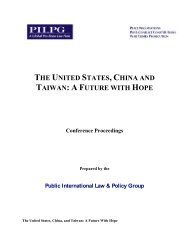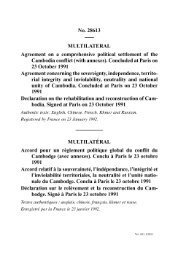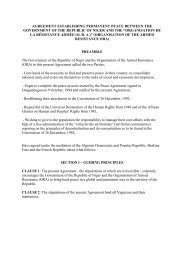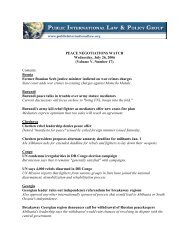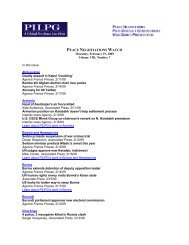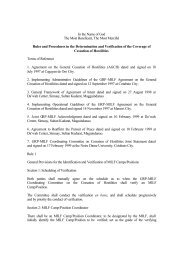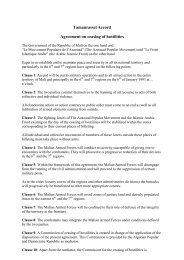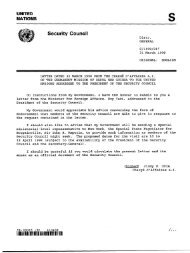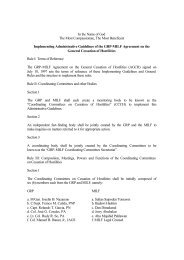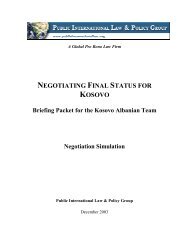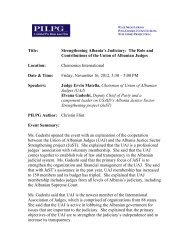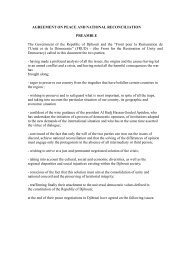Create successful ePaper yourself
Turn your PDF publications into a flip-book with our unique Google optimized e-Paper software.
12<br />
Genuine reconciliation between Albanians and Serbs will be impossible until there is<br />
some resolution of the issue of final status but this will also require an honest<br />
examination on both sides of the recent past. The international mission in Kosovo is<br />
making no effort to accomplish this. Noted Kosovo Albanian human rights activist Vjosa<br />
Dobruna pointed out that since the end of the 1999 war, the international community has<br />
condemned Kosovo Albanian abuses of the Kosovo Serb minority. Yet, the<br />
internationals have not devoted similar attention to the abuses of the Kosovo Albanian<br />
population by the Serbs under the Milosevic regime. She said this has led to growing<br />
resentment even among well-intentioned persons such as herself regarding the lack of<br />
perspective on human rights abuses, which perversely has the effect of reducing Kosovo<br />
Albanian efforts end these abuses against Serbs. She urged greater efforts toward<br />
genuine reconciliation between the two groups through a mechanism that might be<br />
similar to the South African truth and reconciliation commission, which could—under<br />
international guidance—begin an honest and searching evaluation of past abuses by both<br />
communities.<br />
Absence of clarity on Kosovo's future also has a devastating effect on efforts to revive<br />
Kosovo's economy, which virtually all Kosovo Albanians place at the top of the agenda<br />
of things that need to be done. With foreign assistance to Kosovo beginning to drop off,<br />
foreign investment must be the primary vehicle for reviving medium and large scale<br />
economic activity in Kosovo. It is completely unrealistic, however, to expect significant<br />
foreign investment in Kosovo if potential investors do not know what state their<br />
investment might belong to and if they understand that some of the potential options for<br />
the future could well rekindle war.<br />
International differences over Kosovo's future status have also blocked privatization,<br />
which is essential to getting the formerly socially owned sector of Kosovo's economy<br />
moving again. For two years privatization has been held up by the UN in New York,<br />
ostensibly out of concern that it could undermine potential claims of owners deriving<br />
from Milosevic's (phony) privatizations of the 1990s. The real reason, of course, is that<br />
several UN Security Council members fear that privatization now could undercut the case<br />
for Belgrade's continued sovereignty in Kosovo. Absence of clarity about ownership<br />
obviously impedes legitimate investment at the same time it encourages informal<br />
"privatizations" of existing assets by individuals or groups with money of questionable<br />
provenance.<br />
One problem with the notion of final status is that both Serbs and Albanians continue to<br />
view it in a binary fashion. When I discussed the issue in terms of practical arrangements<br />
to meet concerns on both sides, my interlocutors often reacted with surprise and interest.<br />
For example, when I discussed the notion of an independent Kosovo, embedded in<br />
regional ties, with open borders, full local autonomy for minorities, extra-territoriality<br />
and a small contingent of Serb guards for shrines such as Gracanica, Rada Trajkovic, who<br />
only minutes before had been fulminating about the return of Serb troops to Kosovo, said<br />
that might be a possible solution.



